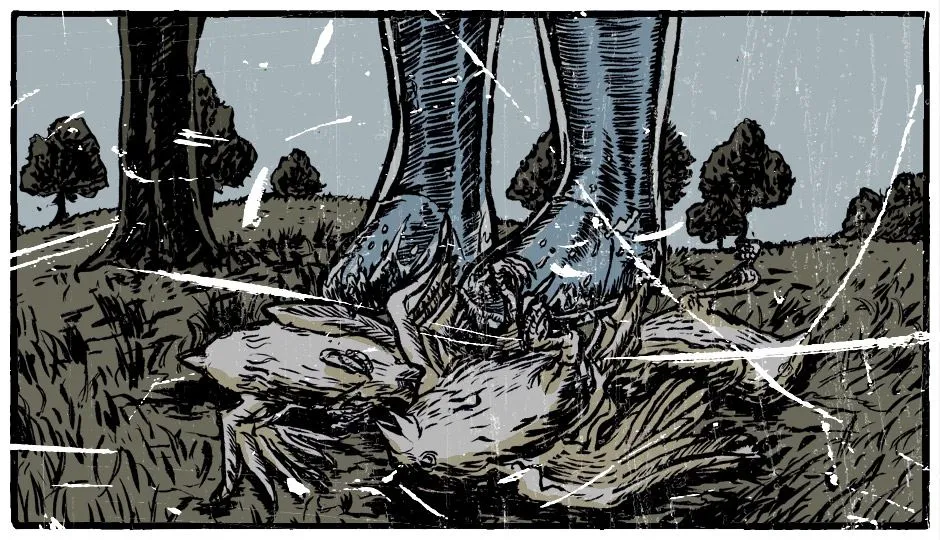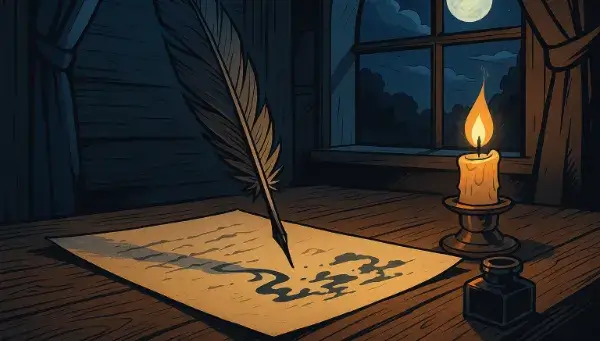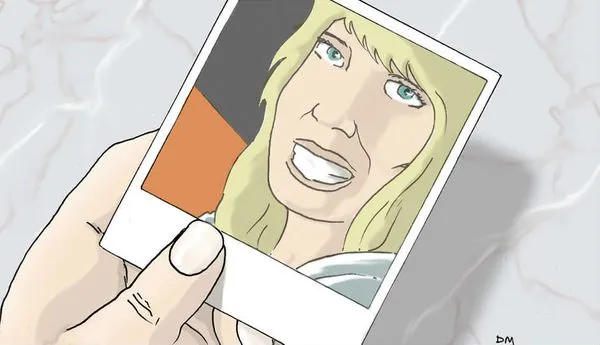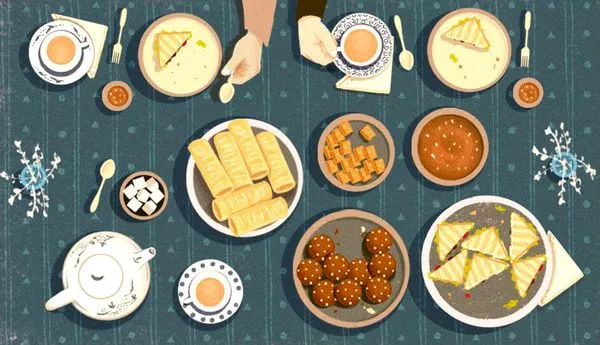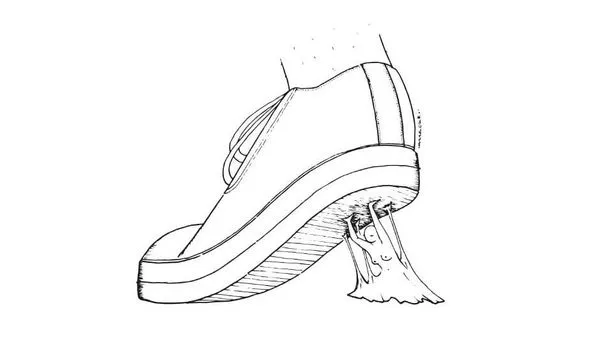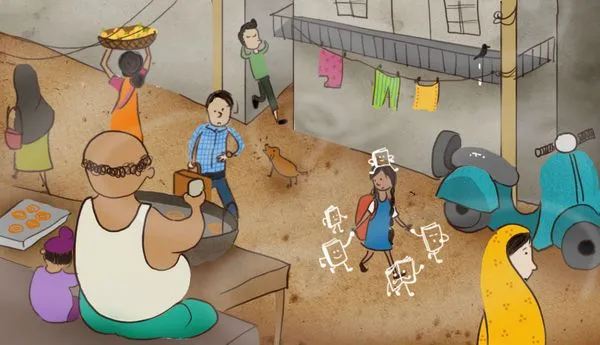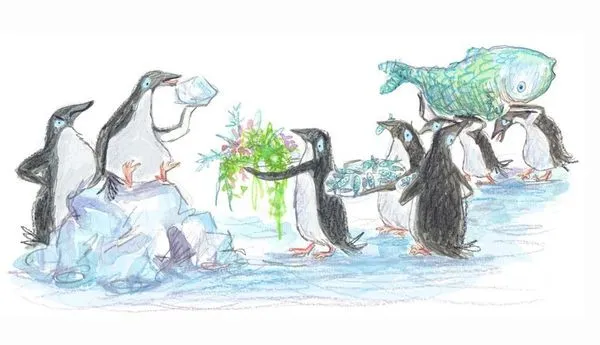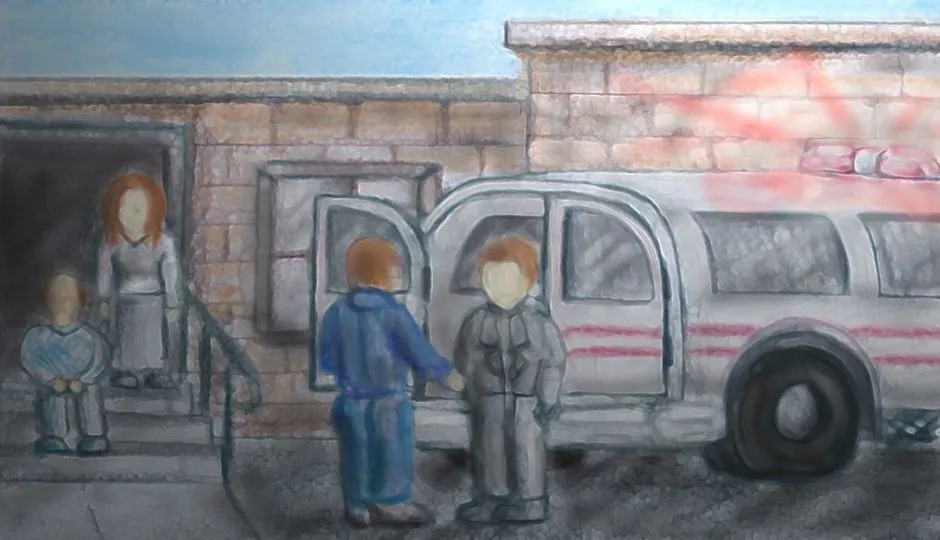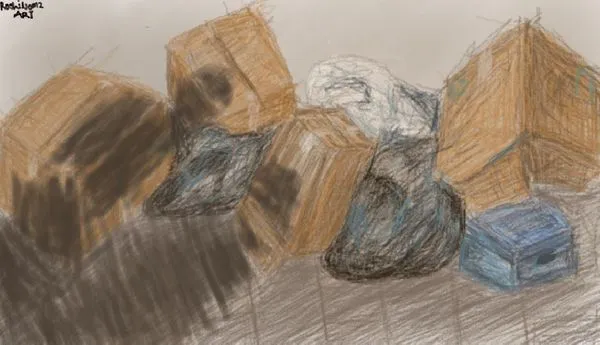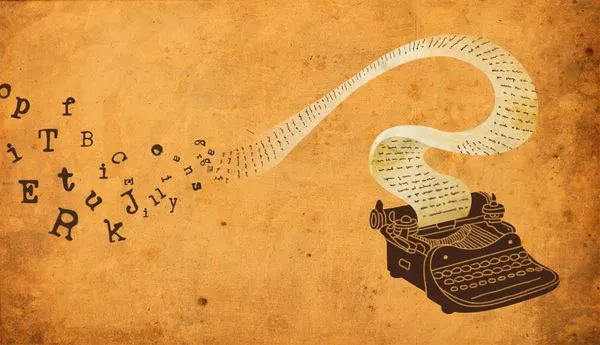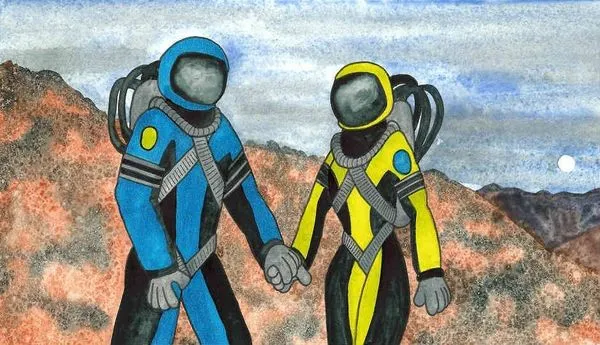Cronus
Brian Moore | Péter János Novák
Published on 2012-12-08
Early Spring. Grandpa at the top of a ladder among the maple’s budded branches, balanced on two points: a foot on a ladder rung, and a hand on the trunk. Other foot cantilevered to counter the weight of the hand he’d thrust out to reach the nest.
Next he had the nest and was coming down to me. The ladder, on Toussaint clay, chirped happily throughout his descent. At the bottom rung he stopped, offered the nest to me. I received it with my two little hands. He went up and away, saying, “Can you take care of them for me?”
I blinked up at his back while he ascended the again chirping ladder, then looked down at his gift to me. Four brown, blind baby birds ringed the inside of the nest, craning outsized, gaping yellow beaks. I saw past crimson throats into empty black stomachs.
I felt moved to action on their behalf. I knew exactly what they were expecting, what they needed. I inhaled deeply as men like Grandpa do on assuming great responsibility.
I looked up again at Grandpa with gratitude and admiration I wanted him to sense. He did not. He pulled hard on the rope of the pruning pole. A branch fell.
My record of caring for wild animals was not good. Bad, in fact. Worse than bad, maybe. Winless, precisely. No wild animal had survived being rescued by me. My latest, a crippled robin, succumbed after just a couple days in my care. Two days in a cardboard box strewn with grass clippings and earthworms, two days of flight therapy (which consisted of me tossing the bird into the air repeatedly while shouting, “Fly!” as encouragingly as I could) were all the longer that robin lasted.
I gushed the story of the crippled robin out loud. Still out loud I promised not to let my Grandpa down.
“First, I’m gonna name them.”
From up and away I heard the puppylike “yip!” sound Grandpa made whenever challenged to gently indicate he found humor in the manner in which I had disappointed him. He was coming down, quickly. Prior to that moment, I would not have guessed that one could deliver scorn with chirps.
He stood before me. I lifted the nest up to him, expecting him to relieve me of it because he’d lost faith in me. I assumed I’d blown the only chance he was ever going to give me to prove that, despite my soft, suburban upbringing, I was like him. I had a place on that farm. I could belong there with him on that clay.
But he didn’t take the nest. With his thumb and two fingers, he roughly plucked the largest of the four chicks. He raised it over his head. And then he threw it forcefully down to the Toussaint clay. My chick expired with a weak thud.
I swallowed hard to quell a violent spasm of heartbreak. I’d already named that one “Rob,” because he was the biggest and tallest, like my best friend.
Grandpa turned to climb up and away again. “They’re sparrows,” he said. And that’s all he said.
I stared dejectedly at the three chicks I now understood had been not saved at all but condemned by Grandpa. I conceived and rejected many desperate, implausible, unworkable escape plans. Finally I accepted that my responsibility really was to control the only two variables left to those chicks: the time left for them to live and the agony they were to endure.
I should have been merciful, and quick. I was neither.
The first took two throws to die if you will permit me to call a “throw” the drop that left the biggest of the remaining three (I arbitrarily chose to kill them in order of their size, biggest to smallest) merely stunned.
From the upper branches of the maple I heard, “Harder!” I picked up the chick, dispatched it.
The second turned out to be my most competent kill. One throw, one thud, one dead chick on the clay.
The runt beat the odds given him by Nature at birth by outliving his larger kin, perhaps by hours. I fumbled him rather gently to the clay then tripped over my own feet pretending to chase after him, when in fact I was shooing him to the protective cover of some stacked stones. I tried to feel good about my having given him maybe a few hours to savor being blind, cold, helpless and alone — but alive.
I stood on that spot between the three dead chicks til Grandpa came down after finishing his work in the maple. I bowed while he inspected the area. I bowed lower when he demanded to know why there were only three corpses on the clay. I said I didn’t know. He crushed me with another one of those yips.
Tested, I’d disappointed everybody that day: Grandpa, the chicks, and myself. But learned the hard way the lie of my soft, suburban upbringing: “You can be anything you set your mind to.” Actually, it takes more than that. Sometimes, it takes a lot more than that.

